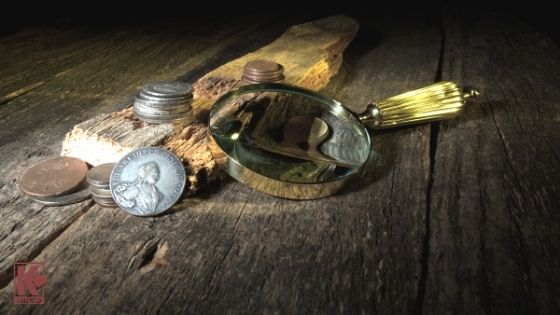The Lost Treasure Magazine Obituary
Published by Sam Jacobs on 03/11/20

Lost Treasure
It’s a well-known fact that print is in decline. However, despite this, a number of niche magazines have been able to hold on. Sadly, Lost Treasure magazine met its untimely end in December 2018, ending its over 50-year run covering treasure hunters past and present.
Lost Treasure first launched way back in 1966 and from there it came out monthly from its Grove, Oklahoman headquarters, far from the epicenter of publishing. One of its common features were reviews of metal detectors that modern-day prospectors might use in their quest for gold.
Where Lost Treasure really went above and beyond, however, was in talking about the treasure hunters of old, not as events frozen in time, but in terms of their relevance for gold prospectors in the present day. The lost treasures of America were a particular focus, as the name might imply, with a particular interest in gold lost during the War Between the States. But there were also gripping tales of old-time stagecoach robberies and the golden age of bank robbery. Lost mines were another focus of the magazine, as well as sunken pirate treasure still sitting around waiting to be taken.
Photos were used, but the magazine also had a distinctive style of drawings that kept readers coming back for more. These were old-timey looking illustrations of everything from six-shooters to scorpions, evoking the symbolism of the Old West. Most were in a charcoal-and-pencil format, which further evoked a bygone age, though watercolors did sometimes appear in the pages of Lost Treasure.

Beach Metal Detecting
Sadly, it isn’t just the print version of Lost Treasure that disappeared when it ceased publication. The website and Facebook page likewise went the way of the Old West.
The magazine suffered from the generalized decline in publishing, however, its content did not lend itself to continued survival as a niche magazine. Information about metal detectors is not only readily available to the general public on the Internet, it is also much more reliable than the “reviews” in Lost Treasure, which were oftentimes glorified advertisements. What’s more, the historical events cataloged in the magazine are likewise easily available to anyone with an Internet connection. As with the reviews of metal detectors, the information is also far more accurate.
The treasure stories were what sold the magazine — the notion that you could go out today with nothing but a metal detector and be the man who discovered the next mother lode of gold ore to become a millionaire. It was an aspirational magazine before there was such a word for such a thing. One didn’t need to strike gold or even hunt for it to appreciate Lost Treasure magazine. One could get a little piece of that life every time one opened up a copy of Lost Treasure. That was where the magazine’s enduring appeal came from rather than practical advice.
Practical advice is now readily available for those seeking to hunt treasure. What’s more, large capital investments are no longer necessary to get your start at hunting for treasure. Such materials can now be rented, allowing you to dip your toes in the pond to find out if a prospector’s life is for you or not.
